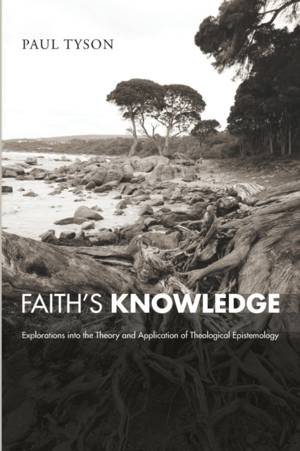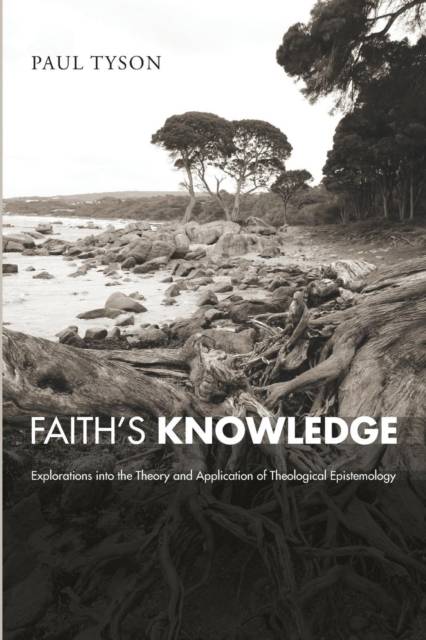
- Retrait gratuit dans votre magasin Club
- 7.000.000 titres dans notre catalogue
- Payer en toute sécurité
- Toujours un magasin près de chez vous
- Retrait gratuit dans votre magasin Club
- 7.000.0000 titres dans notre catalogue
- Payer en toute sécurité
- Toujours un magasin près de chez vous
Faith's Knowledge
Explorations into the Theory and Application of Theological Epistemology
Paul Tyson
Livre broché | Anglais
46,45 €
+ 92 points
Format
Description
Can we know truth even though certain proof is unattainable? Can we be known by Truth? Is there a relationship between belief and truth, and if so, what is the nature of that relationship? Do we need to have faith in reason and in real meaning to be able to reason towards truth? These are the sorts of questions this book seeks to address. In Faith's Knowledge, Paul Tyson argues that all knowledge that aims at truth is always the knowledge of faith. If this is the case, then--against our modernist cultural assumptions about knowledge--truth cannot be had by proof. Yet, if this is true, then mere information and simply objective facts do not (for us as knowers) exist. Knowledge is always embedded in belief, and knowledge and belief is always expressed in relationships, histories, narratives, shared meanings, and power. Hence, a theological sociology of knowledge emerges out of these explorations in thinking about knowledge as a function of faith.
Spécifications
Parties prenantes
- Auteur(s) :
- Editeur:
Contenu
- Nombre de pages :
- 210
- Langue:
- Anglais
Caractéristiques
- EAN:
- 9781610978187
- Date de parution :
- 02-05-13
- Format:
- Livre broché
- Format numérique:
- Trade paperback (VS)
- Dimensions :
- 152 mm x 226 mm
- Poids :
- 294 g

Les avis
Nous publions uniquement les avis qui respectent les conditions requises. Consultez nos conditions pour les avis.






